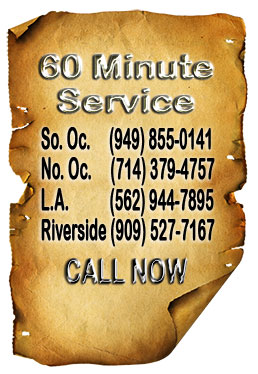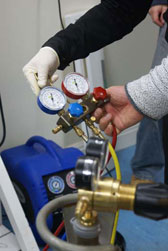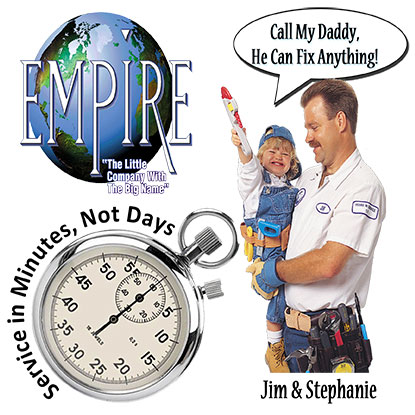 c) Prohibitions On Venting.- c) Prohibitions On Venting.-
(1) Effective July 1, 1992, it shall be
unlawful for any person, in the course of maintaining, servicing,
repairing, or disposing of an appliance or industrial process
refrigeration, to knowingly vent or otherwise knowingly release
or dispose of any class I or class II substance used as a
refrigerant in such appliance (or industrial process
refrigeration) in a manner which permits such substance to enter
the environment. Deminimis releases associated with good faith
attempts to recapture and recycle or safely dispose of any such
substance shall not be subject to the prohibition set forth in
the preceding sentence.
(2) Effective 5 years after the enactment of the Clean Air Act
Amendments of 1990, paragraph (1) shall also apply to the
venting, release, or disposal of any substitute substance for a
class I or class II substance by any person maintaining,
servicing, repairing, or disposing of an appliance or industrial
process refrigeration which contains and uses as a refrigerant
any such substance, unless the Administrator determines that
venting, releasing, or
disposing of such substance does not pose a threat to the
environment. For purposes of this paragraph, the term "appliance" includes any device which contains and uses as a refrigerant a
substitute substance and which is used for household or
commercial purposes, including any air conditioner, refrigerator,
chiller, or freezer.
The Prohibition on Venting
Effective July 1, 1992, Section 608 of the Act prohibits individuals from intentionally venting ozone-depleting substances used as refrigerants (generally CFCs and HCFCs) into the atmosphere while maintaining, servicing, repairing, or disposing of air-conditioning or refrigeration equipment (appliances).
Only four types of releases are permitted under the prohibition:
"De minimis" quantities of refrigerant released in the course of making good faith attempts to recapture and recycle or safely dispose of refrigerant.
Refrigerants emitted in the course of normal operation of air-conditioning and refrigeration equipment (as opposed to during the maintenance, servicing, repair, or disposal of this equipment) such as from mechanical purging and leaks. However, EPA requires the repair of leaks above a certain size in large equipment (see Refrigerant Leaks).
Releases of CFCs or HCFCs that are not used as refrigerants. For instance, mixtures of nitrogen and R-22 that are used as holding charges or as leak test gases may be released.
Small releases of refrigerant that result from purging hoses or from connecting or disconnecting hoses to charge or service appliances will not be considered violations of the prohibition on venting. However, recovery and recycling equipment manufactured after November 15, 1993, must be equipped with low-loss fittings.
Refrigerant Leaks
Owners or operators of refrigeration and air-conditioning equipment with refrigerant charges greater than 50 pounds are required to repair leaks within 30 days when those leaks result in the loss of more than a certain percentage of the equipment's refrigerant charge over a year. For the commercial (e.g. grocery stores and warehouses) and industrial process refrigeration sectors, leaks must be repaired within 30 days when the equipment leaks at a rate that would release 35 percent or more of the charge over a year. For all other sectors, including comfort cooling (such as building chillers), leaks must be repaired when the appliance leaks at a rate that would release 15 percent or more of the charge over a year.
Read More Testimonials
 When they left, our home was as clean and neat as when they arrived. When they left, our home was as clean and neat as when they arrived. 
~ Mr. & Mrs. Ed J. Lopacki
 I’m sure you’ve heard this all before but let me say again how pleased I am to add my words to those others. THANK YOU FOR A JOB WELL DONE!! I’m sure you’ve heard this all before but let me say again how pleased I am to add my words to those others. THANK YOU FOR A JOB WELL DONE!! 
~ Larry Rushing
 Thank you for a job well done. Thank you for a job well done. 
~ Edward Craig
Environmental Protection Agency No Venting of Freon |

